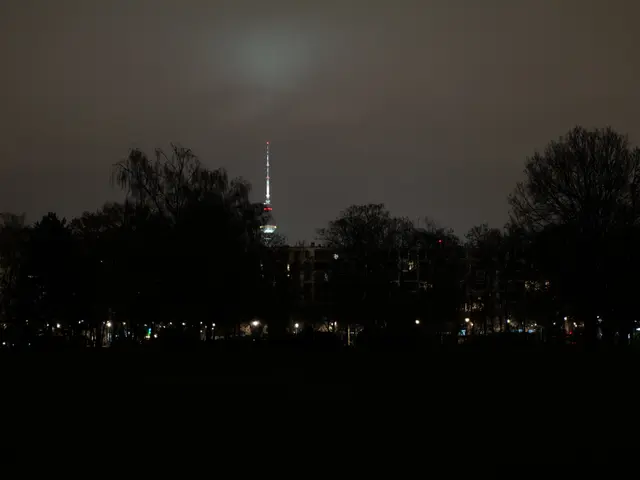Take Down: Ukraine's "Operation Spider's Web" Against Russian Air Bases
Russia suffers drone assault, allegedly damaging 40 bombers; negotiations set to recommence in Turkey
Ukraine's forces have pulled off a bold move with their "Operation Spider's Web," an ambitious drone attack deep within Russian territory, hitting several key military air bases. This covert operation, masterminded by Ukraine's Security Service (SBU), demonstrates Ukraine's innovative approach to asymmetric warfare[1][2][4].
Targets and Destruction
- Targets: The operation targeted major Russian air bases, such asBelaya, Dyagilevo, Ivanovo Severny, Olenya, and Ukrainka, with the main focus on strategic bombers like Tu-95MS and Tu-22M3[1][4].
- Carnage: Ukraine boasts that it ravaged 41 Russian warplanes, making it the largest drone strike yet on Russian air bases[2][4]. This massive assault showcases Ukraine's capability to strike at the heart of Russian territory.
Ceasefire Outlook Post-Operation
The outlook for a ceasefire after the "Operation Spider's Web" operation remains hazy and depends on a variety of factors:
- Escalation and Response: With Russia potentially reacting with force to maintain its strategic dominance, further escalation could prolong any potential ceasefire negotiations[1][2].
- International Pressure: International powers might ramp up pressure on both sides to negotiate a truce, given the grave intensification and the looming threat of broader conflict. However, achieving unanimity among major powers is no walk in the park[3].
- Ukraine's Negotiating Power: Ukraine's demonstration of military prowess may give it a stronger hand in negotiations, allowing it to seek more favorable terms in any potential ceasefire agreement. Nevertheless, Russia might not be inclined to budge, leading to continued hostilities[1][4].
- Exposed Russian Vulnerabilities: The attack revealed vulnerabilities in Russia's rear defenses, which could impact Russia's willingness to engage in talks should it feel its strategic assets are under siege. However, Russia's military strategy and political objectives continue to play a crucial role in shaping its response[1][2].
Overall, while the operation sheds light on Ukraine's military capabilities and may shift the dynamics of negotiations, it doesn't necessarily pave the way for an immediate ceasefire. The situation remains fluid, with both sides harboring various strategic interests and agendas[1][4].
- The "Operation Spider's Web" in Ukraine, dubbed as a significant example of asymmetric warfare, is gaining attention in the realm of general news and war-and-conflicts.
- Politics surrounding Ukraine are increasingly under scrutiny, with the operation bringing policy-and-legislation into focus, as international parties contemplate potential reactions.
- Meanwhile, the car-accident section of the news sees no direct connection to the operation, but the term 'carnage' used to describe the extent of the successful drone attack has stirred images in readers' minds.
- The crime-and-justice sector, however, remains unaffected, as the operation does not involve any criminal activities within Ukraine's borders.
- The escalating conflict in Ukraine is also drawing attention to fires, as increased military activities may potentially lead to accidental clashes that could start wildfires, adding another layer of concern to the already complex general-news landscape.








